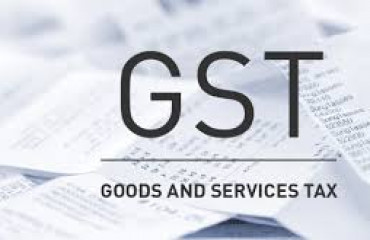
NEW DELHI : The government may propose reducing goods and services tax (GST) on ghee and butter to 5% from the current 12%, according to government documents reviewed by Mint.
NEW DELHI : The government may propose reducing goods and services tax (GST) on ghee and butter to 5% from the current 12%, according to government documents reviewed by Mint.
The plan comes as retail milk prices have risen by 10.1% in a year and 21.9% over the past three years due to higher feed and fodder costs for cattle.
The animal husbandry and dairying department has requested the finance ministry to include the proposal in the GST fitment committee, which will then be presented to the GST Council, the federal indirect tax body, for consideration.
"If you put ghee under the luxury product category, under a 12% GST slab, it pinches pockets of consumers as well as farmers. India is meeting 70% of its edible oil consumption by importing palm oil, which is placed under a 5% GST slab," said Indian Dairy Association president Rupinder Singh Sodhi. "A 12% GST translates to ₹70 per kg, and to make a kg of ghee, it requires 12-14 litres of milk. Where farmers could get ₹5-6 more on milk price, they end up spending more because of the 12% GST on ghee. The government is basically taxing not only consumers but also farmers."
Queries sent to the spokespeople for the ministries of animal husbandry and dairying, finance, and the GST Council remained unanswered.
In July last year, the GST Council withdrew exemptions granted to certain dairy products to rationalize the levy and prevent tax leakages. While pre-packaged and labelled milk products, including paneer, curd, lassi, and buttermilk, levy a 5% GST, condensed milk, cheese, butter, and ghee are taxed at 12%.
"The GST on ghee and butter should be equal to cooking oil, which is 5%, so that farmers get the right price for their agricultural produce," Sodhi said.
Lowering GST on ghee would not only benefit farmers but also help arrest the upward trend in inflation. A reduction in ghee prices would also help curb adulteration and allow farmers to reduce retail prices for milk.
"We are focusing more on ghee because white butter is prepared in winter and stored, and during summer, skimmed milk powder and white butter are recombined and milk is produced. This milk is sold in the market," Sodhi said. While milk is exempt from GST, milk powder attracts a 5% rate.
"Reduction of GST will also bring down retail inflation in milk, which was 8.56% in June," Sodhi said.
The ghee and butter market in India is valued at approximately ₹1.25 trillion, with the organized sector accounting for ₹30,000 crore. The Indian dairy industry and dairy cooperatives have consistently raised this issue with the government and made numerous representations on the matter.
